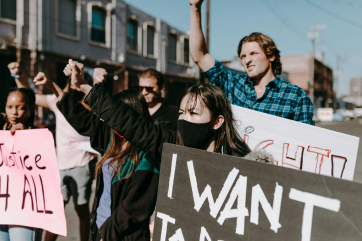Controversy Surrounds Firing of Clayton State University's First Black Female Provost
By Joy LiwanagClayton State University's decision to terminate Kimberly McLeod, its first Black female provost, has stirred significant debate and scrutiny both within the institution and beyond its campus borders. The controversy surrounding McLeod's firing, occurring barely six months into her tenure, has raised broader questions about academic integrity, diversity, and institutional accountability in higher education.

Dismissal Amid Curriculum Vitae Discrepancies
The university's official stance on McLeod's termination rests on the discovery of multiple inaccuracies found on her curriculum vitae (CV). These discrepancies, uncovered during an investigation, cast doubt on the authenticity of publications listed on McLeod's CV. While McLeod maintained that she contributed to the cited works, the investigation concluded that she misrepresented her scholarly record.
The termination of McLeod, a highly experienced academic administrator, has prompted discussions about the scrutiny faced by minority scholars in academia. Some observers suggest that McLeod's dismissal may reflect broader challenges faced by Black scholars, particularly concerning the fairness and impartiality of institutional evaluation processes.
Matthew Boedy, president of the Georgia Conference of the American Association of University Professors, drew parallels between McLeod's termination and recent incidents at prestigious institutions like Harvard University. He highlighted a perceived pattern of targeting academics, particularly Black scholars, with allegations of academic misconduct as part of a broader agenda.
READ ALSO: Plagiarism Allegations Target Black Scholars In Anonymous Anti-DEI Campaign
Broader Implications for Diversity and Inclusion
McLeod's appointment as Clayton State's provost represented a significant milestone in the university's commitment to diversity and inclusion. However, her swift dismissal raises concerns about the treatment of minority scholars and the potential impact on efforts to promote diversity within higher education institutions.
Critics argue that while maintaining academic integrity is essential, the circumstances surrounding McLeod's termination warrant careful consideration. Questions linger about the transparency and equity of the investigation process, with implications for the recruitment and retention of diverse talent within academia.
In a February article for Governing Magazine, Jabari Simama, ex-president of Georgia Piedmont Technical College, referenced McLeod's termination, Claudine Gay's resignation, and the suicide of Antoinette Candia-Bailey, an administrator at Lincoln University of Missouri. He described their experiences as examples of "the poisonous patriarchy of higher education" that targets Black women in particular.
Navigating the Aftermath and Looking Ahead
As Clayton State University grapples with the fallout from McLeod's termination, attention turns to interim leadership and future recruitment practices. The incident underscores the need for transparent and equitable hiring and evaluation processes, with a renewed focus on fostering an inclusive environment for all faculty members.
Furthermore, McLeod's case serves as a reminder of the persistent barriers faced by Black women in academia. The controversy surrounding her termination highlights broader issues of systemic inequity and the importance of addressing these challenges within higher education institutions.
Moving forward, discussions within the academic community will likely center on strategies to promote diversity, equity, and fairness in academic leadership roles. McLeod's dismissal serves as a catalyst for broader conversations about the intersection of race, gender, and institutional accountability in higher education.
Ultimately, the controversy surrounding McLeod's termination underscores the ongoing struggle for equity and fairness within academia. As universities strive to uphold academic integrity and promote diversity, the case of Kimberly McLeod serves as a poignant reminder of the work that remains to be done in achieving these goals.
RELATED ARTICLE: Stony Brook University Arrests Trigger Campus Controversy








